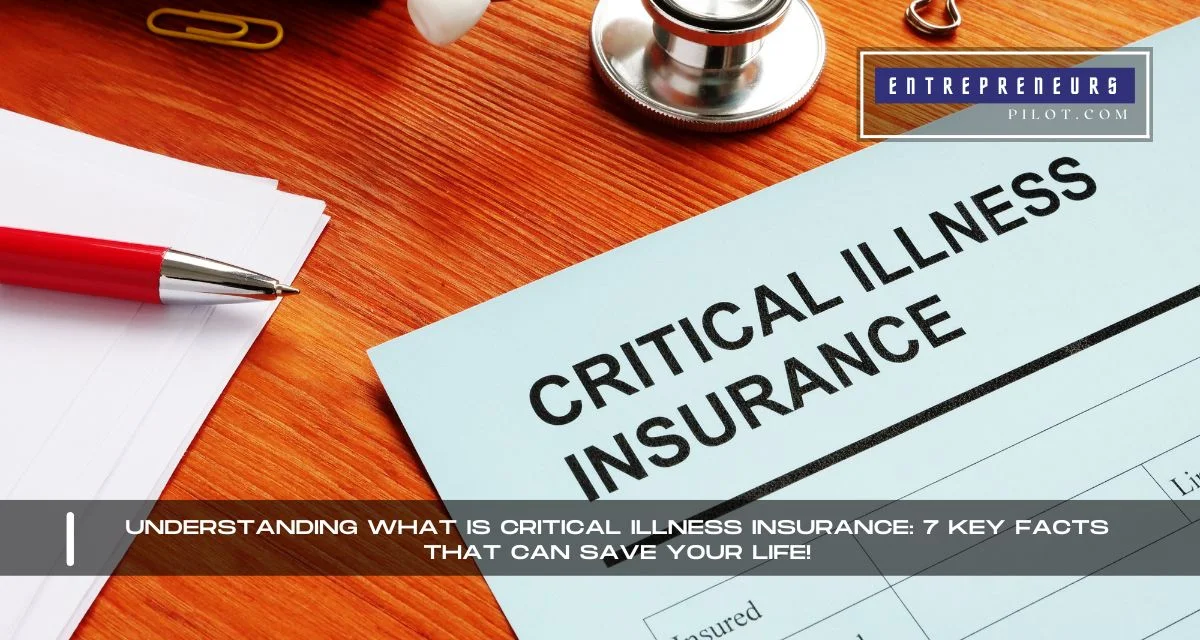Introduction
Navigating the complexities of health and insurance can often feel like a daunting journey. However, when it comes to safeguarding your health and financial well-being, understanding What Is Critical Illness Insurance becomes not just beneficial but potentially life-saving. This specialized insurance provides a financial safety net at a time when you need it the most, covering illnesses that can have a profound impact on your life and savings. In this article, we’ll delve into seven key facts about critical illness insurance that could very well save your life or at least, significantly ease your burdens during challenging times. Let’s embark on this enlightening journey together, unlocking the knowledge that can fortify your future against the unexpected.
Table of Contents
1. What Critical Illness Insurance Covers
Critical illness insurance is designed to offer financial protection against the costs associated with life-altering illnesses such as cancer, heart attacks, and strokes. Unlike traditional health insurance, which pays providers for medical services, critical illness insurance pays a lump sum directly to you, the policyholder. This means you have the freedom to use the funds as needed, whether for medical bills, daily living expenses, or even travel costs for treatment.
2. Lump-Sum Payment
One of the most significant benefits of critical illness insurance is the lump-sum payment it offers upon diagnosis of a covered condition. This one-time payment can be a financial lifesaver, providing you with a buffer to cover unexpected expenses without dipping into savings or retirement funds. It allows you to focus on recovery rather than financial stress.
- For Expert Financial Insights And Guidance, You Can Visit Our Sister Site – ArabsGeek.com Now!
- Curiosity Piqued? Dive Into the Most Captivating Financial Content by Visiting Our Homepage!
- Unlock Exclusive Business Opportunities! 🚀 Connect with Us Now at our Email: [email protected]!
3. Range of Covered Conditions
Critical illness insurance policies vary but typically cover a wide range of conditions. Beyond the “big three” – cancer, heart attack, and stroke – many policies also cover conditions such as organ transplants, kidney failure, and multiple sclerosis. Understanding the specific conditions covered by your policy is crucial, as this directly impacts the value and relevance of the coverage to your personal health history and concerns.
4. Benefits of Early Detection
Some critical illness insurance policies offer partial payouts for early-stage diagnoses of certain conditions, like cancer. This feature encourages early detection and treatment, which can significantly improve prognosis and quality of life. It underscores the policy’s role not just in financial protection, but in promoting health awareness and proactive management of one’s health.
5. Policy Costs and Factors
The cost of critical illness insurance varies based on several factors, including age, health status, the amount of coverage, and the number of conditions covered. Generally, the younger and healthier you are when you purchase the policy, the lower your premiums will be. It’s a balancing act between cost and coverage, and understanding your own risk factors and family history can help you make an informed decision.
6. Integration with Other Insurance
Critical illness insurance is not a replacement for health insurance or disability insurance, but rather, a complement to these policies. While health insurance covers medical costs and disability insurance replaces a portion of your income, critical illness insurance provides a lump-sum that can be used flexibly, filling any gaps left by other types of insurance.
7. Considerations Before Purchasing
Before purchasing critical illness insurance, consider your current health insurance coverage, emergency savings, and the likelihood of needing the coverage based on your family medical history. It’s also important to thoroughly read the policy, paying close attention to the covered conditions, exclusion periods, and payout processes. An informed decision is a powerful one, especially when it comes to protecting your health and financial future.
Conclusion | What Is Critical Illness Insurance
Understanding “What Is Critical Illness Insurance” and how it functions within the broader spectrum of your health and financial planning is essential. These seven key facts shed light on the importance of having a safety net in place for life’s most challenging moments. Whether it’s the coverage of a wide range of conditions, the benefit of a lump-sum payment, or the peace of mind in knowing you can focus on recovery without financial worry, critical illness insurance offers a layer of protection that can be invaluable. As with all insurance decisions, the key is to assess your personal needs and risks, ensuring that you’re equipped to face whatever comes your way with confidence.
Frequently Asked Questions
1. How does critical illness insurance differ from traditional health insurance?
Critical illness insurance provides a lump-sum payment upon the diagnosis of a covered condition, whereas traditional health insurance pays for medical services as they are provided. This lump-sum can be used for any expense, offering more flexibility.
2. Can I buy critical illness insurance if I have a pre-existing condition?
It depends on the insurer and the specific condition. Some policies may exclude certain pre-existing conditions, or may offer coverage with a higher premium. It’s essential to disclose all relevant health information when applying for coverage.
3. Is there a waiting period for critical illness insurance?
Many policies have a waiting period (often 30 days) from the start of the policy before a diagnosis can qualify for a payout. Additionally, there may be a survival period requirement, meaning you must survive a certain number of days post-diagnosis to receive the payout.
4. How do I choose the right amount of coverage?
Consider your financial obligations, including debts, daily living expenses, and potential medical costs not covered by health insurance. A financial advisor can help you calculate an appropriate coverage amount based on your individual needs and risks.
5. Does critical illness insurance cover mental health conditions?
Most critical illness insurance policies focus on physical health conditions such as cancer, heart attack, and stroke. Mental health conditions are typically not covered, though it’s important to review the specific terms of any policy you’re considering.











